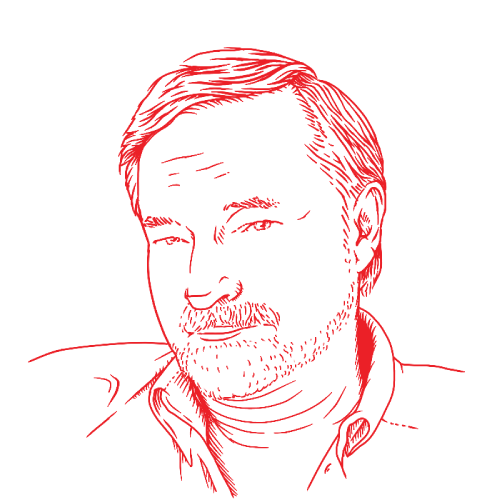Erik Larson
Meet author Erik Larson. He's the man behind NYT best-selling books like Dead Wake, Thunderstruck, In the Garden of Beasts, and Devil in the White City. Before writing five New York Times best-sellers, Larson received a masters in journalism from Columbia University. After a brief stint at the Bucks County Courier Times, he became a staff writer for The Wall Street Journal, and later a contributing writer for Time Magazine. He has written articles for The Atlantic, Harper’s, The New Yorker, and other publications.
Q: I see you started your writing career in journalism writing for the Bucks County Courier Times. How did you eventually transition into contributing to publications like WSJ and Time?
A: I got very lucky. I put my name in for a new opening at the Courier, and got passed over in favor of an outside hire. I was so annoyed that I shipped my resume off to everyone I knew in journalism. One thing led to another and my resume wound up in the hands of the WSJ's Philadelphia bureau chief. He liked my clips; we hit it off. He hired me. Honestly, I could not believe my luck.
Q: What was the driving force behind your first book? Was it always something you wanted to do, or were you looking for a new challenge as a writer?
A: I had quit the Journal by then, and as part of a devil's bargain I cut with my wife after we got married, where she took a prestigious position at Johns Hopkins (and we moved to Baltimore), I got to work on whatever I wanted without any pressure to make any money. I wound up freelancing pieces anyway, for Harper's, The Atlantic, and other magazines, because I hated disappearing from the landscape and not having an income of my own.
I soon realized, however, that for all the work I did for those stories, I might as well write a book, because at least it would have a longer (and literal) shelf-life. I loved the process and pace, however, and decided that writing books was what I'd do with the rest of my working life.
Q: You're a writer known for doing your own research. Do you have a process that you follow every time you're researching for a new book, or is it always different?
A: My process has evolved, and continues to evolve, though the fundamentals are the same: I just try to go as deeply into a subject as possible, reading everything, then parachuting into whatever archives seem worthwhile.
Digital cameras made my research life so much easier. Now I just shoot every document that looks even remotely useful, and print them all out later. It is much more cost effective than spending months in a hotel in some far-flung place--though there is much to be said for spending time in hotels in such places, especially if they have good bars.
Q: What's one common misconception people have about your life as a writer today?
A: That it's easy. That I sit around all day having lunch with writer friends. Writing is hard work. My day starts at 5:30 a.m.; it ends at 5:30 p.m. I write, research, think, read, but of course I spend a good deal of time obsessing, second-guessing myself, and angsting over whether an idea is really working or not.
Q: What one piece of advice would you give to aspiring writers?
A: Here's my secret weapon: I quit while I'm ahead. When I'm in the writing phase, I never binge write, or write until I'm exhausted. I always, always, always quit when I'm ahead, sometimes in mid-sentence, so that the next morning I'm instantly productive. It makes getting up and facing the page so much easier.


